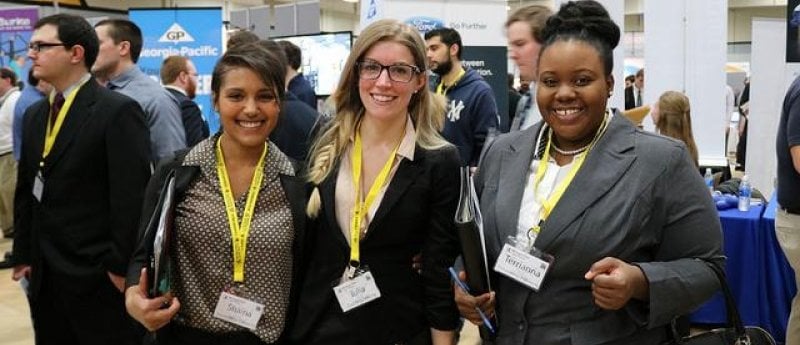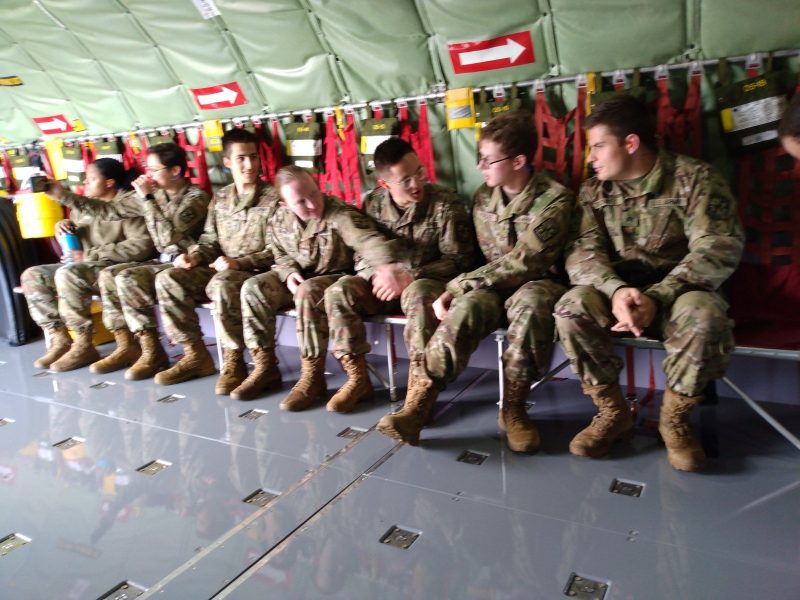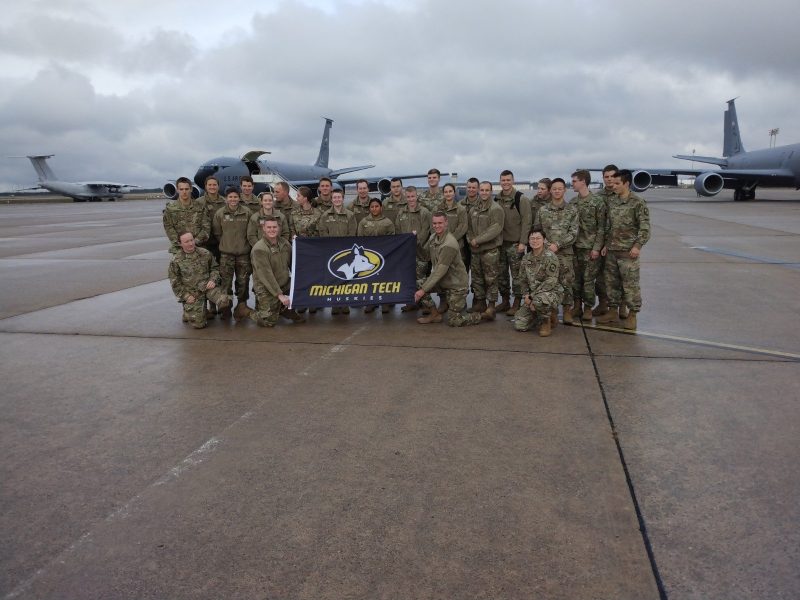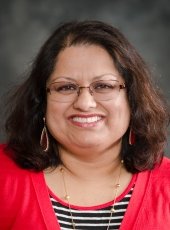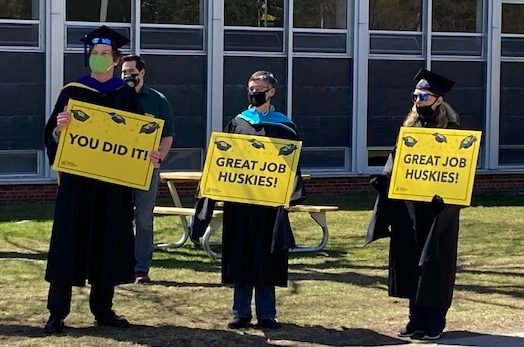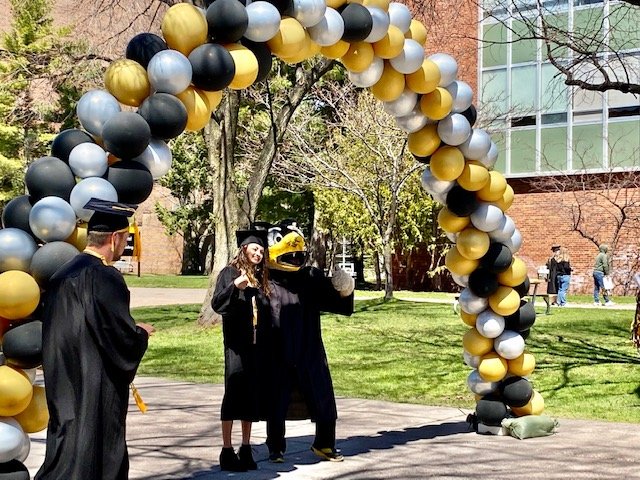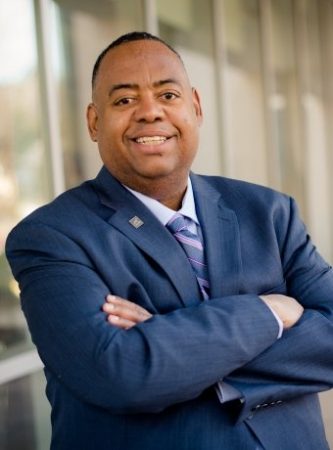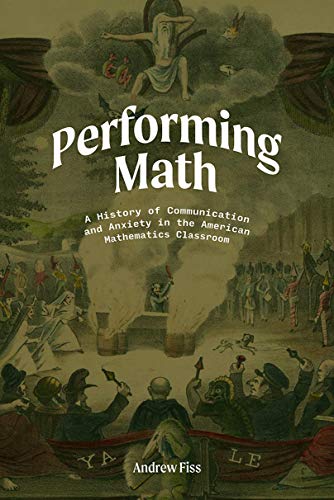Greetings from the College of Sciences and Arts at Michigan Tech!
Spring semester started with a frigid blast of snow and ice that closed the K-12 schools for a couple days and unfortunately caused enormous headaches for students trying to get back into town, with multiple flight cancellations and closures of both Route 2 and 28 between here and the Mackinac Bridge. Undaunted, our PE skiing classes got underway as scheduled with below zero temperatures on Monday evening; Tech students are hardy!
In-Person Graduation Ends 2021
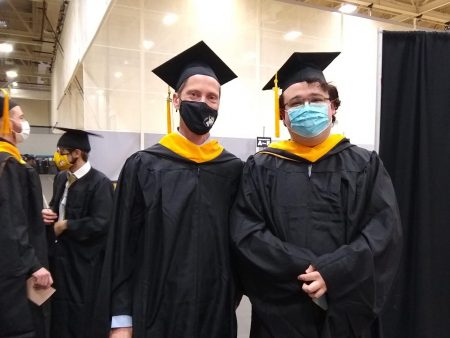
Before the break we had an in-person graduation ceremony for the first time in two years! It was wonderful to don my regalia and congratulate the graduates walking across the stage in the Wood gym, including about 100 from our College. And, of course, the ceremony ended with a rousing performance from the Husky Pep Band! The graduation ended a successful semester of in-person instructions with only very limited disruptions from COVID. Fingers crossed we can repeat this success the semester without too many Omicron disruptions!
Applications to the College of Sciences and Arts continue to grow
Last Fall we welcomed our largest freshmen class since 1982, and our momentum is continuing with applications for Fall ’22 up 5.5% over last year’s already record-setting number. For the next five months our recruiters, faculty and students will focus relentlessly on convincing our incredible admits to join us in Houghton next Fall. Outreach includes personal notes to students, evening texting events, and some upcoming in-person events in Detroit, Chicago and Minneapolis. If any of our alumni are interested in potentially helping, please let me know.
New H-STEM building coming soon!
Later this semester we will break ground on our new “H-STEM” building, which will house the departments of Kinesiology and Integrative Physiology and Biomedical Engineering, and the Health Research Institute. Our faculty can’t wait to move into this beautiful space. Find out more here https://www.mtu.edu/h-stem/
Deedra Irwin ’15 to compete in the Olympics
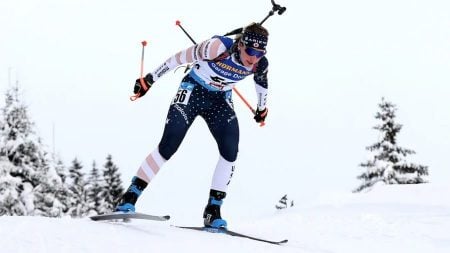
We were excited to learn Deedra Irwin has been named to the 2022 U.S. Olympic Biathlon Team. She was at Michigan Tech from 2010 to 2015 while earning her Bachelor of Science in Exercise Science with a Coaching minor.
Congratulations to Deedra! We are all wishing her the best of luck when she competes for gold February 5-19 at the 2022 Beijing Olympics in the Zhangjiakou Zone!
A return to teaching
And finally, I am back in the classroom, teaching “Combinatorial Representation Theory” this semester. I’ve always thought it was useful for administrators to teach on occasion, and I’ve greatly enjoyed teaching our students, although I could do without the mask!
Thank you for your continued support
Critical to everything we do are our alumni and friend donors. All your donations to our departments, scholarships, and the general fund are vitally important to our success. Thank you so much for supporting Michigan Tech! For CSA giving opportunities please visit: https://www.mtu.edu/sciences-arts/giving/
If you are ever back in town I hope you will stop by, say hello, and share with me your MTU story. Please do not hesitate to email me any time at djhemmer@mtu.edu to share your MTU experience or offer suggestions.
